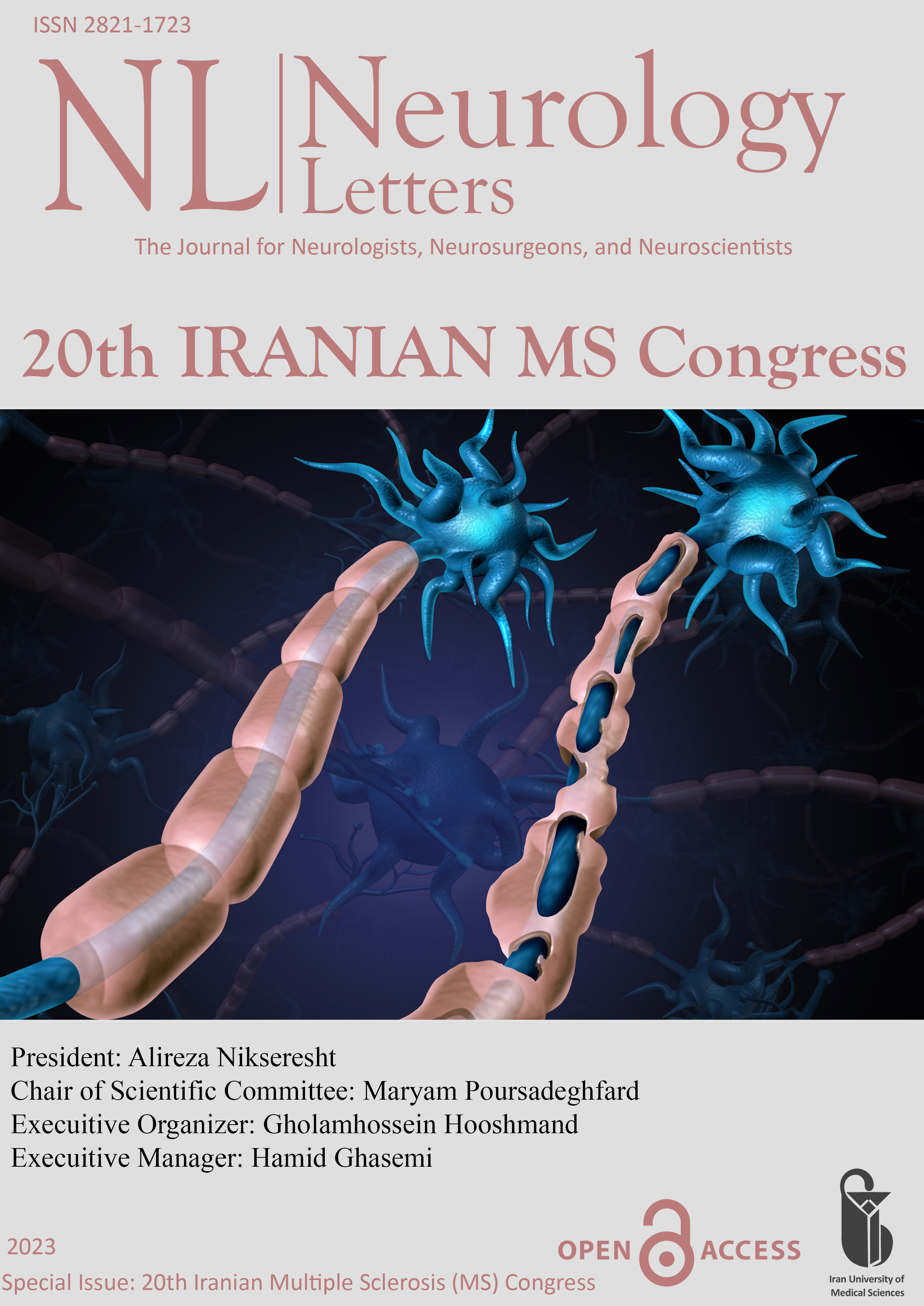Brain Stimulation for Cognitive impairment in Multiple Sclerosis (ORP-17)
Document Type : Oral Presentation
Author
Department of Cognitive Neuroscience, Institute for Cognitive Sciences Studies, Tehran, Iran
Abstract
Cognitive impairment is a common feature in patients with multiple sclerosis (MS) and can significantly impact their quality of life. Non-invasive brain stimulation techniques, such as transcranial direct current stimulation (tDCS) and repetitive transcranial magnetic stimulation (rTMS), have emerged as potential treatment options for cognitive impairment in MS. This abstract provides an overview of the use of tDCS and rTMS in the treatment of cognitive impairment in MS, based on the available literature.
Several studies have investigated the feasibility and efficacy of tDCS in patients with MS. developed a remotely supervised tDCS protocol (RS-tDCS) that allows participants to complete daily sessions from home while being supervised by a study technician. This protocol has shown feasibility and tolerability in patients with MS. Additionally, RS-tDCS paired with cognitive training (CT) has demonstrated preliminary efficacy in improving fatigue and cognitive processing speed in patients with MS. These findings suggest that tDCS, particularly when combined with CT, may have potential benefits for cognitive impairment in MS.
Similarly, rTMS has been explored as a potential treatment for cognitive impairment in MS. In a meta-analysis by , the therapeutic effects of rTMS on core symptoms of MS were summarized. Although the specific effects on cognitive impairment were not highlighted, the study provides evidence of the potential benefits of rTMS in MS. Furthermore, studies have shown positive effects of rTMS combined with physical or cognitive training on motor and cognitive impairments in patients with Parkinson's disease. These findings suggest that rTMS, in combination with other interventions, may have a positive impact on cognitive function in MS.
It is important to note that cognitive impairment in MS is a complex and multifaceted condition, and the underlying mechanisms are not fully understood. Multiple cognitive domains, including information processing speed, attention, memory, and executive function, can be affected. The severity and type of cognitive impairment can vary among individuals and disease stages. Therefore, the treatment of cognitive impairment in MS requires a personalized approach, taking into account the specific cognitive deficits and individual needs of each patient.
In conclusion, tDCS and rTMS have shown promise as potential treatments for cognitive impairment in patients with MS. The use of RS-tDCS and CT has demonstrated feasibility and preliminary efficacy in improving cognitive function and reducing fatigue in MS. Additionally, rTMS, in combination with other interventions, has shown positive effects on motor and cognitive impairments in related neurological conditions. However, further research is needed to optimize stimulation protocols, determine the long-term effects, and establish the therapeutic efficacy of tDCS and rTMS in the treatment of cognitive impairment in MS.
Keywords
 Neurology Letters
Neurology Letters
